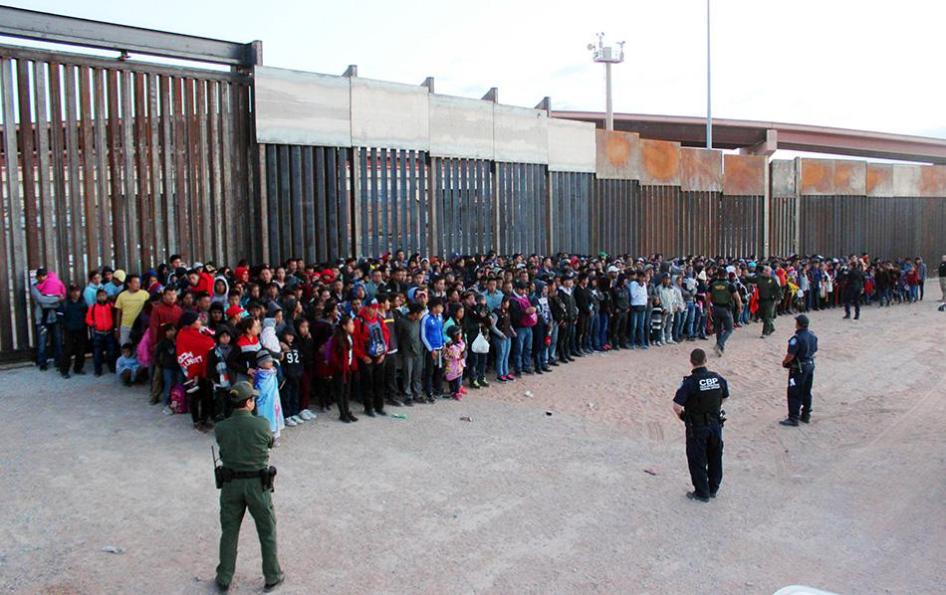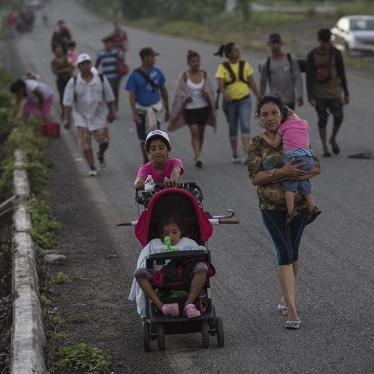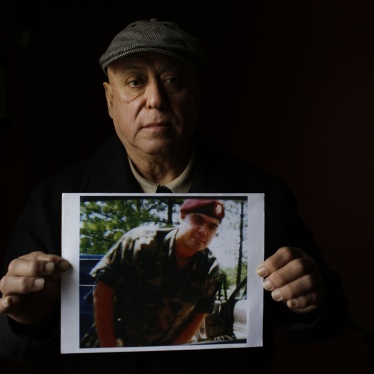The three-year old before me had matted hair, a hacking cough, muddy pants, and eyes that fluttered closed with fatigue. His only caretaker for the last three weeks in a United States Border Patrol chain-link cage and then a cell…his 11-year old brother.
The two boys crossed into the US with an 18-year old uncle late last month, the older brother said, as the toddler passed out asleep on two office chairs. They were separated from their adult relative and sent to the Clint Border Patrol Station, an outpost near El Paso, Texas that, as of yesterday, housed about 250 unaccompanied and separated migrant children.
This week, I’ve been working as part of a team of lawyers and doctors monitoring conditions in border facilities, including in Clint. What we found has left me devastated.
Children should spend no more than a few hours in short-term border jails and US-law limits their detention under typical circumstances to 72 hours, but many of the children we interviewed at Clint had been there for three or four weeks. The Border Patrol claims that high numbers of border arrivals are causing these delays as they wait for space to open up in the somewhat more child-friendly detention centers and shelters run by the Office of Refugee Resettlement at US Health and Human Services. Based on our interviews, officials seem to be making no effort to release children to caregivers – and many have parents in the US – rather than holding them for weeks in overcrowded cells sleeping on concrete floors. Nearly all of the children I spoke with had been held without any communication from desperate parents.
Meanwhile, a public health emergency is brewing. While we were denied access to speak with children quarantined in special cells for those with flu at Clint, several infants held in South Texas facilities were admitted recently to a hospital, after the intervention of doctors and lawyers. Children at Clint told us they don’t have regular access to showers or clean clothes, with some saying they hadn’t been allowed to bathe over periods of weeks and don’t have regular access to soap. The US government argued in court on Tuesday that its obligation to provide “safe and sanitary” conditions does not require it to provide kids with hygiene items such as soap or toothbrushes.
Many of the kids in the Clint facility are too young to wash or feed themselves, yet they are left to fend for themselves with the help of unrelated older children. The detained children we spoke with told us about an infant as young as six-months old being cared for by an unrelated teenager because the baby’s mother was in the hospital. We were also told about a 15-year-old taking care of a sick two-year-old, unrelated to her, who had been separated from her family.
Dr. Nancy Wang, a pediatric emergency physician at Stanford who formed part of our team, told me if a child came into her emergency room and reported this kind of treatment, under law, she would be obligated to report it as child neglect. Last week, the monitoring team encountered a teenage mother who was using a wheelchair after a recent cesarean section and vulnerable premature baby in a Border Patrol jail in south Texas. (The pair has since been transferred to a shelter.)
The conditions I saw this week are consistent with Human Rights Watch’s prior findings on the harms children face in Border Patrol detention, with impacts now accruing over weeks instead of days. Congress should urgently investigate and take action to stop these unconscionable abuses, such as requiring immigration agencies to release these children as soon as possible to their family members.








